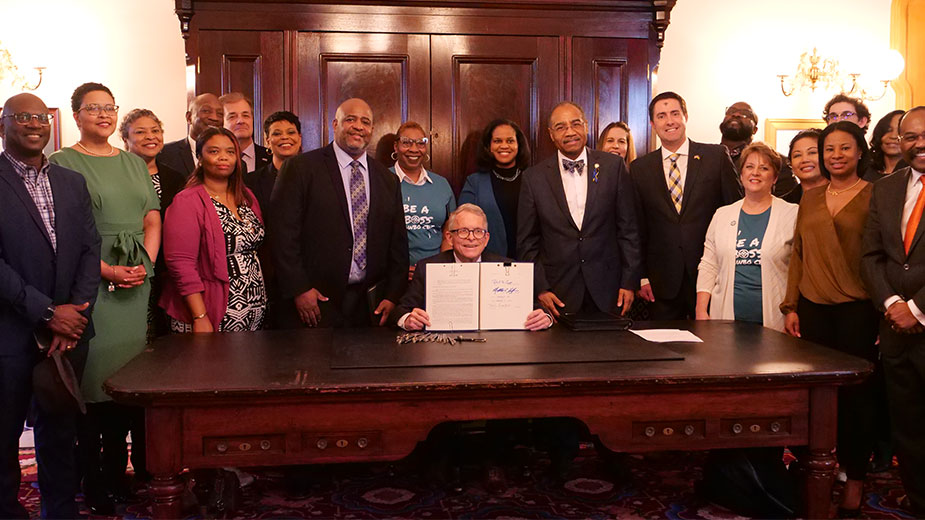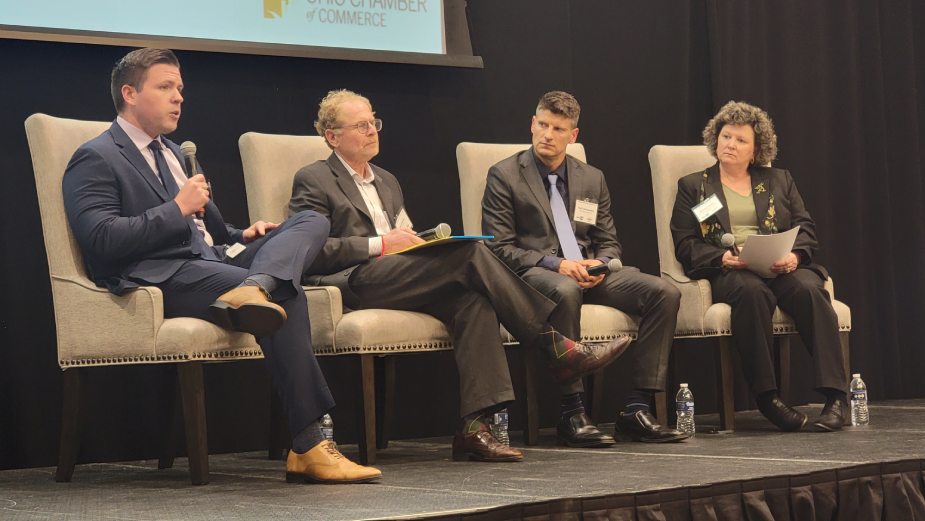New Ohio Law Removes Hurdles for Minority, Women and Veteran Entrepreneurs
COLUMBUS, Ohio — A new law signed by Gov. Mike DeWine Wednesday seeks to streamline the Minority Business Enterprise certification process in the state.
According to a press release, the bipartisan Senate Bill 105 removes duplicative, bureaucratic hurdles for minority, women-owned and veteran-friendly businesses seeking Minority Business Enterprise certification – a process that proponents say is “burdensome and time-consuming.” The bill, sponsored by stated Sens. Vernon Sykes, D-28, and Kirk Schuring, R-29, requires political subdivisions to recognize state certification of those businesses.
“Ohio is the destination state for job creators because we don’t let needless bureaucracy get in the way of entrepreneurship,” Secretary of State Frank LaRose said in the release. “What started with frustrations shared to me by the minority business community turned into a major bipartisan victory. I am thankful to the bill sponsors, Senators Sykes and Schuring, our legislative leaders, and Governor DeWine for having the backs of entrepreneurs.”
During minority business roundtables in the state, LaRose said he would often hear frustration about the unnecessary time and paperwork required to become Minority Business Enterprise certified. In October 2021, LaRose and other proponents of the bill offered testimony to the Ohio House Economic and Workforce Committee.
Jeanne Gokcen, founder and president/CEO of FutureCom Technologies Inc. in Columbus, testified on behalf of the National Association of Women Business Owners – Columbus Chapter. S.B. 105 would allow certification obtained from the state to be recognized by local governments across Ohio, thus eliminating or reducing the need to apply for multiple certifications proving a business is minority or women-owned, she explained.
The certification process “is burdensome and time-consuming” and can take months, she said, to collect the required documentation and check it for all the items required by a city, county or state government. Some venues also charge additional fees, she said.
“Although we recognize and appreciate the need to be thorough to prevent fraud within these programs, I have had to personally go through the certification process in multiple venues,” Gokcen said. “Recently, I simply chose not to compete for contracts in a particular jurisdiction, because I just didn’t have the bandwidth to go through that entire process all over again.”
Pre-pandemic, 306,000 women-owned businesses in the state generated some $29 billion in revenue, contributed $9.5 billion in payroll annually and created 330,000 jobs, she said.
Click HERE to watch more testimony.
Pictured: Gov. Mike DeWine, state Sen. Vernon Sykes and Secretary of State Frank LaRose with proponents of S.B. 105 at Wednesday’s signing.
Published by The Business Journal, Youngstown, Ohio.



